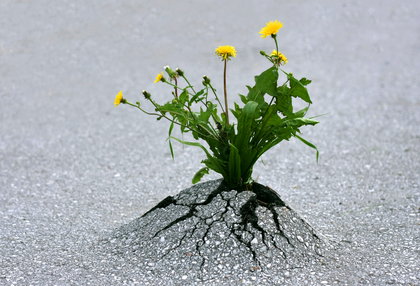What determines our fate? Perhaps it is Determination itself?
One Hundred and Twenty-Nine Children were identified* as being “high risk for future problems, because they faced four or more adversities at birth, ranging from poverty and family discord to alcoholism or mental illness in the home. Two-thirds of these high-risk children went on to have difficulties of their own, such as delinquency, unplanned pregnancies and underemployment. One-third, however, fared well. At school and at work, they did as well as, or better than, their low-risk peers from more affluent, stable homes. In adulthood, they found supportive partners and built loving families that, often, differed greatly from the ones they grew up with. They became competent, confident, caring adults.”
How did they do it?
– They were active problem solvers who, over a period of decades, fought for better lives for themselves.
– Though they weren’t necessarily gifted, they used whatever strengths they had to their advantage—a particular talent, an engaging personality, a ready intelligence.
– They sought out friends, teachers, neighbors or relatives who cared.
– They made plans to better themselves and set ambitious but realistic goals for the future.
– They seized opportunities to move forward in life, by way of higher education, the military, a new job, a supportive partner or parenthood.
When the researchers asked these resilient adults how they understood their own success in retrospect, the majority reported that their most important asset was determination.
Full credit for this blog goes to Dr. Jay, a clinical psychologist at the University of Virginia and author of “Supernormal: The Untold Story of Adversity and Resilience.”
Closing Quotes:
“I am a fighter—I am determined—I will survive. I give it 100% before I give up. I will never lose hope.” – Childhood abuse survivor
“When things have to be done, you just do it. I am not the type of person to run away—no matter how difficult the problem.” – Bookkeeper
“I don’t let problems take control. I just pick myself up and start all over—you can always try again.” – Aerospace engineer
This blog is drawn entirely from and is basically a quoted summary of:
https://www.wsj.com/articles/the-secrets-of-resilience-1510329202?tesla=y
* Kauai Longitudinal Study, an ongoing project begun in 1955 by psychologists Emmy Werner and Ruth Smith covering 698 babies born on the island that year, with assessments so far at ages 1, 2, 10, 18, 32, and 40. “Journeys From Childhood to Midlife.”
As always, I share what I most want and need to learn. – Nathan S. Collier



0 Comments